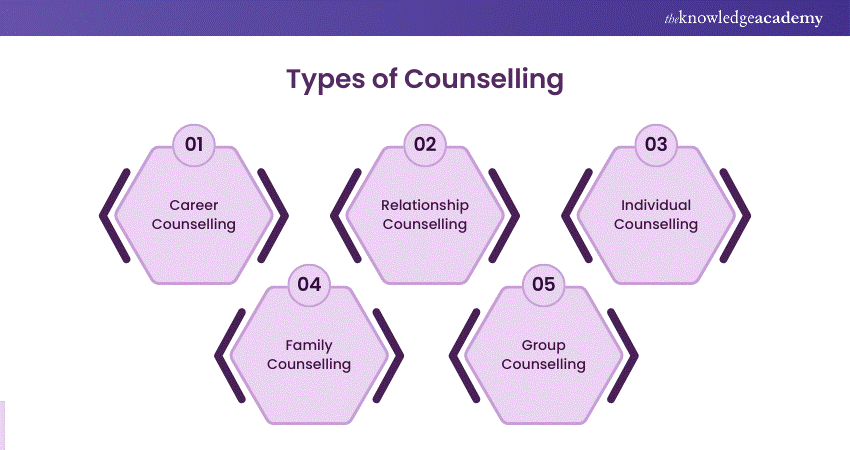Exploring the Advantages of Virtual Therapy in Modern Mental Healthcare
The increase of virtual therapy marks a significant change in mental wellness care. It uses enhanced accessibility, permitting individuals from diverse histories to seek assistance without geographical restraints. Versatility in scheduling accommodates varying way of livings, while the comfort of home can cultivate openness. The effects of these changes expand beyond plain benefit. The advancing landscape of therapy raises crucial concerns concerning its long-term results on individual involvement and treatment end results.
Improved Access for All
Although conventional therapy usually offers barriers such as geographical area and organizing disputes, virtual therapy significantly enhances availability for people seeking mental health and wellness support. By getting rid of the requirement for physical traveling, virtual therapy permits customers from remote locations or those with flexibility challenges to connect with qualified specialists. This setting of therapy can get to underserved populaces who might lack regional psychological health and wellness resources, therefore attending to differences in access to care. Furthermore, virtual systems can cater to diverse requirements, using services in numerous languages and accommodating various cultural histories. Customers can engage with a wider series of professionals, offering them with choices that straighten with their particular requirements and preferences. This enhanced access fosters a more inclusive atmosphere, permitting individuals to look for assistance without the preconception typically related to in-person sees. On the whole, virtual therapy represents a substantial improvement in making mental wellness care a lot more accessible to all.
Flexibility in Organizing Procedure

As virtual therapy proceeds to gain grip, its integral versatility in scheduling sessions proves to be a substantial advantage for many people. Unlike conventional in-person therapy, virtual therapy enables clients to choose session times that best fit their individual and specialist commitments. This adaptability accommodates those with demanding job schedules, family responsibilities, or other dedications that can make going to physical consultations testing.
Clients can conveniently reschedule or adjust their sessions as required, lowering the tension connected with rigid visit systems. The availability of numerous time slots throughout the week, including nights and weekends, better boosts access. This adaptability not just urges consistency in participation yet likewise promotes a greater dedication to the therapeutic procedure. Eventually, the adaptability in organizing sessions represents a transformative change in psychological wellness care, empowering people to prioritize their well-being without giving up other aspects of their lives.
Convenience of a Familiar Setting
The comfort of a familiar environment significantly boosts the performance of virtual therapy for several clients. Participating in therapy from the security of their very own homes permits individuals to feel even more secure, lowering stress and anxiety that might accompany traditional in-person sessions. This knowledge can help with open communication, making it possible for customers to express their ideas and feelings more openly.
The visibility of individual products and the capability to manage their environments can add to a feeling of safety and security and relaxation. Clients frequently report that being in a comfortable space allows them to concentrate extra on the healing process instead of the setting itself.
Additionally, the casual nature of virtual sessions can assist dissolve obstacles that might exist in a conventional workplace environment, promoting a deeper link with therapists. Generally, the comfort of familiar environments plays an essential duty in improving the restorative experience and efficiency for lots of people looking for psychological health support.
Larger Array of Healing Options
A broader variety of healing choices appears via virtual therapy, allowing customers to accessibility different methods that may not be feasible in typical settings. This versatility makes it possible for people to explore diverse strategies such as cognitive-behavioral therapy, mindfulness methods, art therapy, and even specialized interventions like trauma-informed care or dialectical behavior modification.
In addition, customers can select from a more comprehensive spectrum of specialists, consisting of those that specialize in niche areas or certain populaces, improving the possibility of finding an appropriate suit. Virtual platforms typically supply accessibility to group therapy sessions, support neighborhoods, and workshops that might be geographically inaccessible or else.
This selection empowers clients to engage in their healing procedure according to their special choices and needs, potentially enhancing inspiration and dedication to treatment. Therefore, the landscape of mental healthcare comes to be extra inclusive and versatile, satisfying a larger array of specific experiences and obstacles.
Decreased Preconception Surrounding Therapy
Accessing therapy with virtual platforms adds to a considerable reduction in the preconception typically connected with mental wellness treatment. By supplying a discreet and exclusive setting, virtual therapy permits people to look for assistance without the fear of being judged or identified. This anonymity interest those that might or else wait to pursue in-person therapy as a result of social understandings surrounding mental wellness.
As the occurrence of virtual therapy increases, it normalizes the conversation around mental wellness, making it a much more appropriate part of daily life. Individuals often really feel much more comfy discussing their experiences online, advertising openness and lowering feelings of seclusion. The ease of access of these services additionally urges a more comprehensive group to engage with psychological wellness resources, fostering a culture of support instead of embarassment. Inevitably, the increase of virtual therapy plays a vital function in improving attitudes towards seeking aid, contributing to an extra approving society relating to psychological health challenges.
Cost-Effectiveness and Cost

Lowered Session Expenses
Lots of individuals looking for psychological health assistance locate that virtual therapy significantly reduces session expenses contrasted to conventional in-person alternatives. The elimination of travel costs and pause job frequently adds to overall savings. In addition, numerous virtual specialists offer affordable rates as a result of lower overhead prices related to keeping a physical office. This change in expense permits clients to accessibility high quality psychological health and wellness services without the monetary pressure that might come with conventional therapy. For numerous, this cost allows a lot more constant sessions, which can enhance therapy end results. As a result, virtual therapy not only democratizes access to psychological wellness treatment however additionally provides a lasting economic design that aligns with clients' spending plans, making mental health assistance much more achievable for a broader target market.
Increased Accessibility Choices
While conventional therapy commonly offers logistical barriers, virtual therapy greatly expands accessibility alternatives for people looking for psychological healthcare. By getting rid of the demand for travel and permitting adaptable organizing, virtual therapy suits diverse way of lives and commitments. This ease of access is specifically helpful for those in remote areas or with movement challenges. In addition, the cost-effectiveness of virtual therapy lowers economic pressure, making psychological health services extra reachable. Several systems provide tiered rates or moving scale costs, promoting cost. Insurance provider increasingly identify virtual therapy, additional enhancing its monetary ease of access. Generally, virtual therapy not only widens the range of that can get care but also addresses economic obstacles, making psychological wellness assistance much more inclusive and achievable for all.
Improved Continuity of Care
Improved connection of treatment becomes a considerable benefit of virtual therapy in modern psychological health and wellness treatment. This technique allows patients to keep consistent communication with their therapists, regardless of geographical barriers or organizing disputes. low cost therapy. The adaptability of virtual sessions fosters routine check-ins, which are essential for keeping track of development and adjusting treatment prepares as needed
Additionally, digital wellness records and telehealth platforms promote seamless information sharing among care carriers. This interconnectedness guarantees that all experts associated with a patient's care are updated on therapy developments, resulting in more worked with and reliable treatments.
Clients commonly experience lowered anxiety and enhanced interaction because of the ease of accessing therapy from familiar atmospheres. Such access improves adherence to therapy programs, eventually improving results - couples counselling. To sum up, virtual therapy not just bridges voids in psychological health solutions yet additionally strengthens the connection of care, a critical component of effective restorative partnerships
Often Asked Inquiries
Just How Does Virtual Therapy Ensure Discretion and Personal Privacy for Clients?
The existing inquiry addresses the steps virtual therapy employs to safeguard client discretion. Making use of encrypted systems, safe and secure logins, and compliance with laws like HIPAA, virtual therapy warranties that sensitive info continues to be personal and inaccessible to unauthorized people.
Can I Change Therapists Easily in Virtual Therapy?
Switching specialists in virtual therapy is typically simple. Clients can interact their need for a modification with the system, enabling for adaptability in finding a far better suit without the logistical challenges of in-person visits.
What Technology Do I Required for Virtual Therapy Procedure?
To take part in virtual therapy sessions, an individual generally needs a trustworthy net connection, a computer or smartphone with an electronic camera and microphone, and accessibility to a safe and secure video conferencing click here system defined by their specialist.

Are Virtual Therapy Procedure as Effective as In-Person Procedure?
Recent researches show that virtual therapy sessions can be equally efficient as in-person sessions, depending upon the person's choices and circumstances. Variables such as comfort and access might boost the total restorative experience for some clients.
What Should I Do if I Experience Technical Issues Throughout a Session?
If technical issues develop during a session, one ought to steadly interact the problem to the specialist, attempt to reconnect, or button to a backup method. Persistence and flexibility are vital in handling these disturbances.